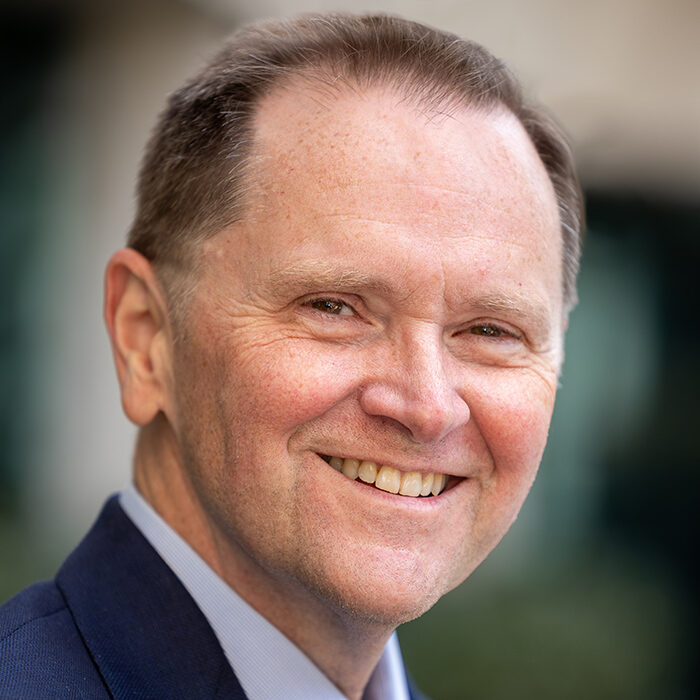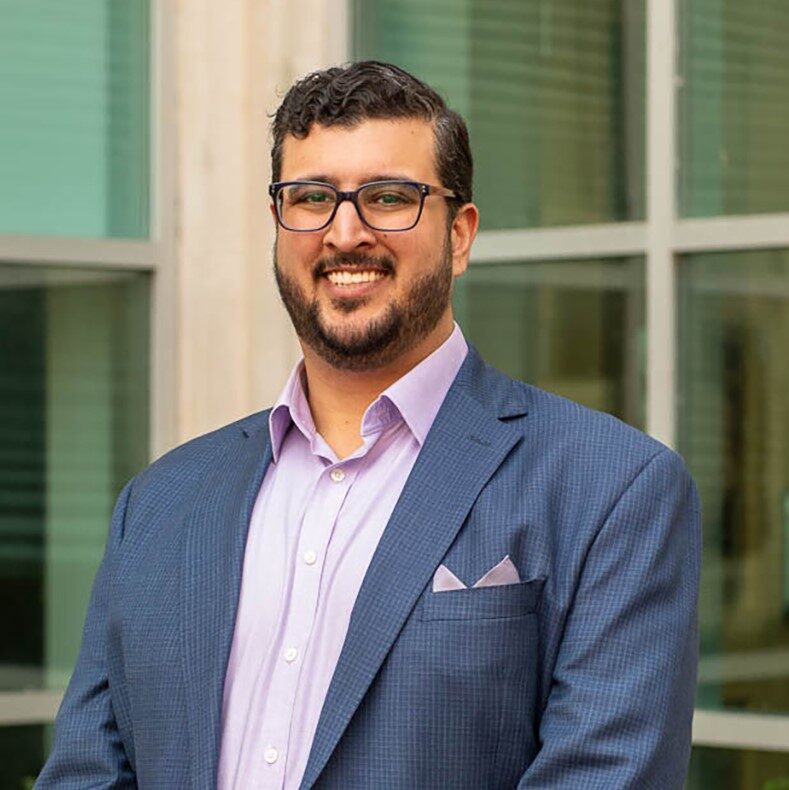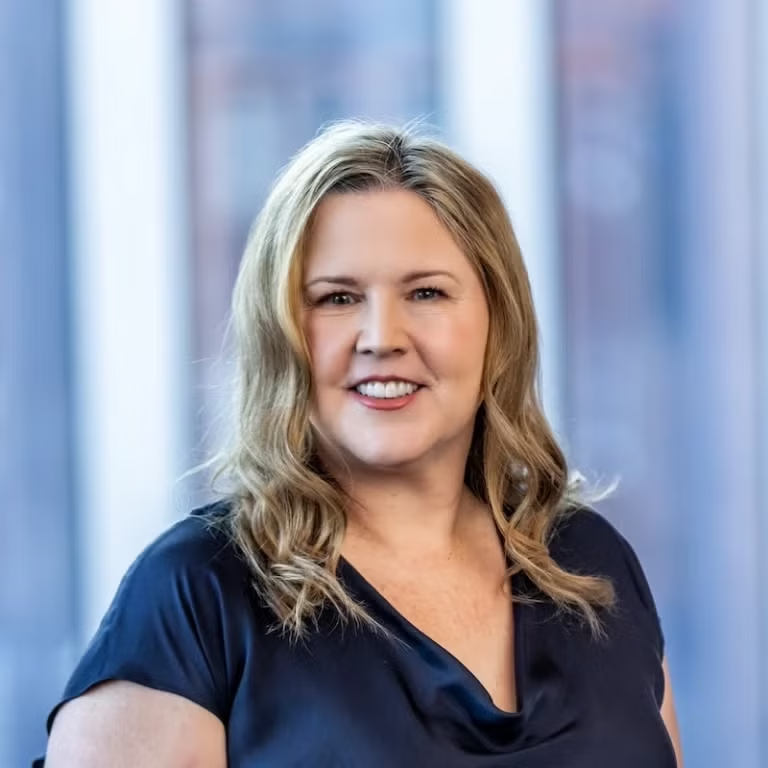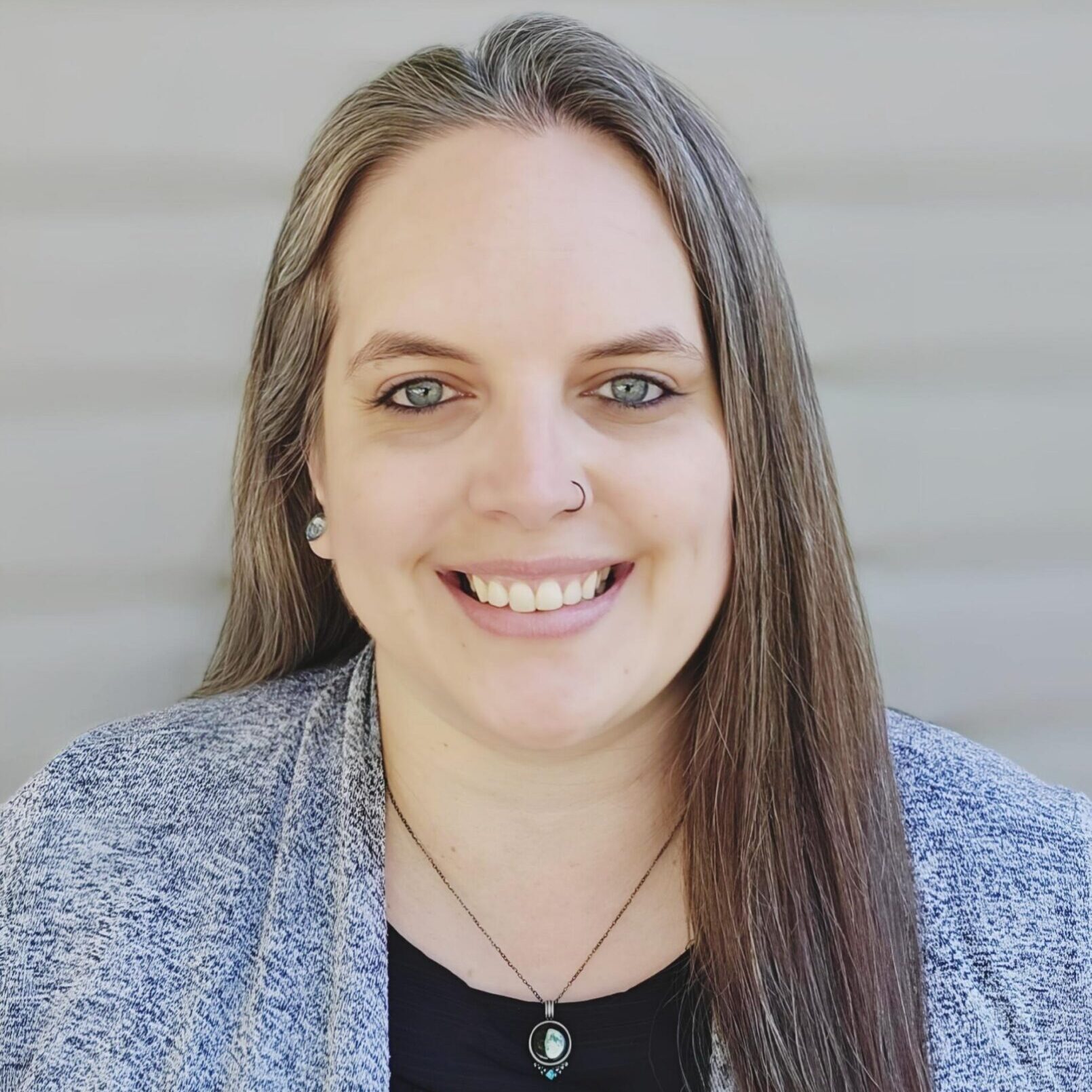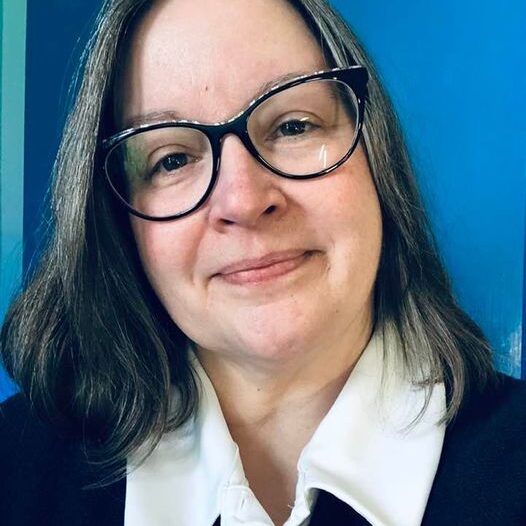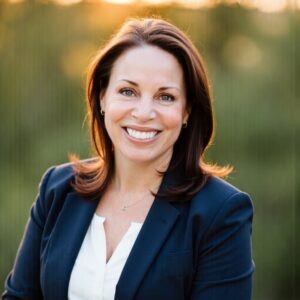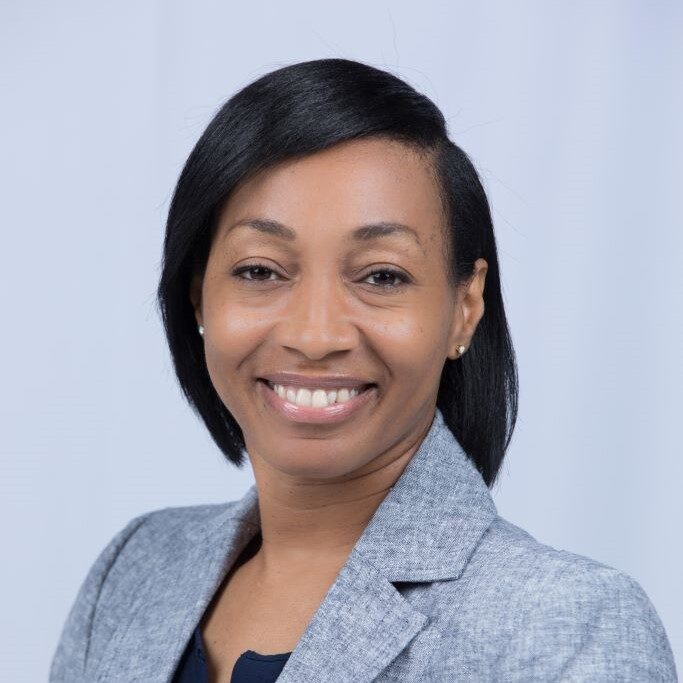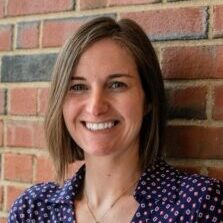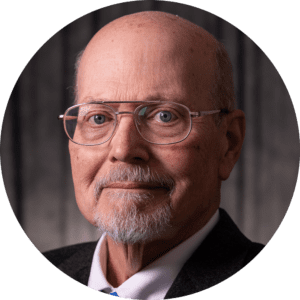About UPCEA
UPCEA is the online and professional education association. Our members continuously reinvent higher education, positively impacting millions of lives. We proudly lead and support them through cutting edge research, professional development, networking and mentorship, conferences and seminars, and stakeholder advocacy. Our collaborative, entrepreneurial community brings together decision makers and influencers in education, industry, research, and policy interested in improving educational access and outcomes.
UPCEA supports thousands of current and future leaders in online and professional continuing education.
CONNECTIONS
We provide year-round networking, learning and mentorship opportunities through in-person meetings and digital platforms.
BEST PRACTICES
We facilitate engagement among our members to share best practices, success strategies and information with one another.
SOLUTIONS PROVIDERS
We connect our institutional members with a broad range of solution and service providers who can assist them in enhancing their offerings and outcomes.
Board of Directors
The UPCEA Board of Directors directs the affairs of the Association, determines its policies, and advances its goals, except as otherwise provided in the Association's Bylaws. The Board meets in-person at least twice per year, with additional meetings being held virtually.
2025-2026 Board of Directors
Robert Bruce
BOARD PRESIDENT
Dean, Susanne M. Glasscock School of Continuing Studies
Rice University
[email protected]
Asim Ali
PRESIDENT-ELECT
Executive Director, Biggio Center for Enhancement of Teaching and Learning
Auburn University
[email protected]
Kim Siegenthaler
IMMEDIATE PAST PRESIDENT
Senior Advisor to the President
University of Hawaii
[email protected]
Tatum Thomas
SECRETARY/TREASURER
Dean, School of Continuing and Professional Studies
DePaul University
[email protected]
Laurel Hogue
NETWORK SENATE CHAIR
Vice Provost for Online and Learning Engagement
University of Central Missouri
[email protected]

Jerry Rhead
REGIONAL CABINET CHAIR
Senior Specialist, Director of Academic Entrepreneurship
Michigan State University
[email protected]
Bettyjo Bouchey
DIRECTOR-AT-LARGE
Chief Officer for Professional and Continuing Education
University of Vermont
[email protected]
Jodene (Jody) Dekorte
DIRECTOR-AT-LARGE
Dean and Vice President School of Multidisciplinary and Professional Studies
Purdue University Global
[email protected]
Jessica DuPont
DIRECTOR-AT-LARGE
Associate Vice Provost, Division of Educational Ventures
Oregon State University
[email protected]
Rene Eborn
DIRECTOR-AT-LARGE
Associate Vice President for Digital Transformation & Enterprise Systems and Security
Utah State University
[email protected]

Jasmeial "Jazz" Jackson
DIRECTOR-AT-LARGE
Chief Student Success, Equity and Inclusion Officer
Thomas Edison State University
[email protected]

Cheryl Murphy
DIRECTOR-AT-LARGE
Vice Provost for Distance Education
University of Arkansas
[email protected]
Sunay Palsole
DIRECTOR-AT-LARGE
Assistant Vice Chancellor for Engineering Remote Education
Texas A&M University
[email protected]
Susan Seal
DIRECTOR-AT-LARGE
Dean, College of Professional & Continuing Studies
Mississippi State University
[email protected]

Ryan Torma
DIRECTOR-AT-LARGE
Executive Director of Professional Development and Lifelong Learning
University of Minnesota
[email protected]
Patrick Wilson
DIRECTOR-AT-LARGE
Vice Provost, Online and Academic Innovation
The University of Texas at Arlington
[email protected]

Craig Wilson
DIRECTOR-AT-LARGE
Chancellor, Palmetto College
University of South Carolina
[email protected]

McCeil Johnson
ENGAGEMENT AND OPPORTUNITY COMMITTEE CO-CHAIR
Vice President, Accreditation and Regulatory Compliance
University of Phoenix
[email protected]
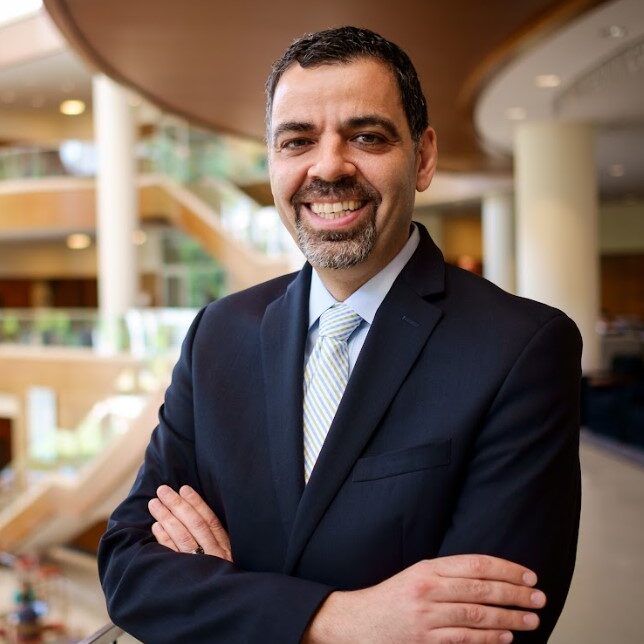
Charles Iacovou
MEMBERSHIP COMMITTEE CHAIR
Dean, School of Professional Studies and Vice Provost, Charlotte Programs
Wake Forest University
[email protected]
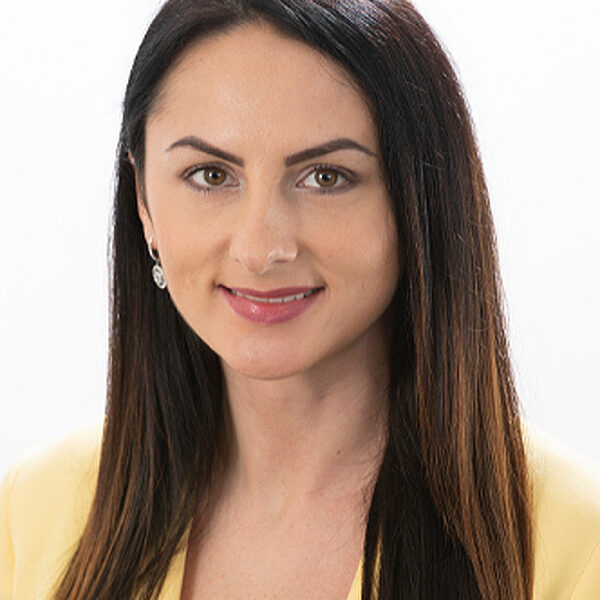
Corina Caraccioli
POLICY COMMITTEE REPRESENTATIVE
Assistant Professor, School of Leadership & Human Resource Development
Louisiana State University
[email protected]
Our Team
UPCEA Staff
Robert Hansen
Dr. Robert J. Hansen has served as Chief Executive Officer of UPCEA, the online and professional education association, since 2010. UPCEA has more than tripled in size during Hansen’s tenure by focusing on new initiatives that elevate the field, including industry-leading events for online leadership and credential innovation in higher education, online leadership development programs, and a popular research and consulting service for members. He previously served in senior leadership roles in both public and private universities, and as an education policy aide in the administration of former Illinois governor, Jim Edgar. Hansen earned a Ph.D. in English from the University of Notre Dame, an M.A. in Literature from the University of Michigan, and a B.S. in Psychology from the University of Illinois.
Beth Bischoff
Beth currently serves as the Operations Administrator for UPCEA, having joined the team in the spring of 2025. She brings over eight years of experience in administrative management, project coordination, and operational support. Prior to her current role, she worked as the Administrative Assistant for the Marine Science Department at Coastal Carolina University.
A detail-oriented professional, Beth excels at managing multiple priorities and thrives in fast-paced environments. Her dedication to efficiency and high-quality service helps ensure smooth day-to-day operations across the organization. She holds a Bachelor of Arts in Elementary Education from Lindenwood University.
Outside of work, Beth enjoys relaxing at the beach, reading in her hammock, and tackling home improvement projects.
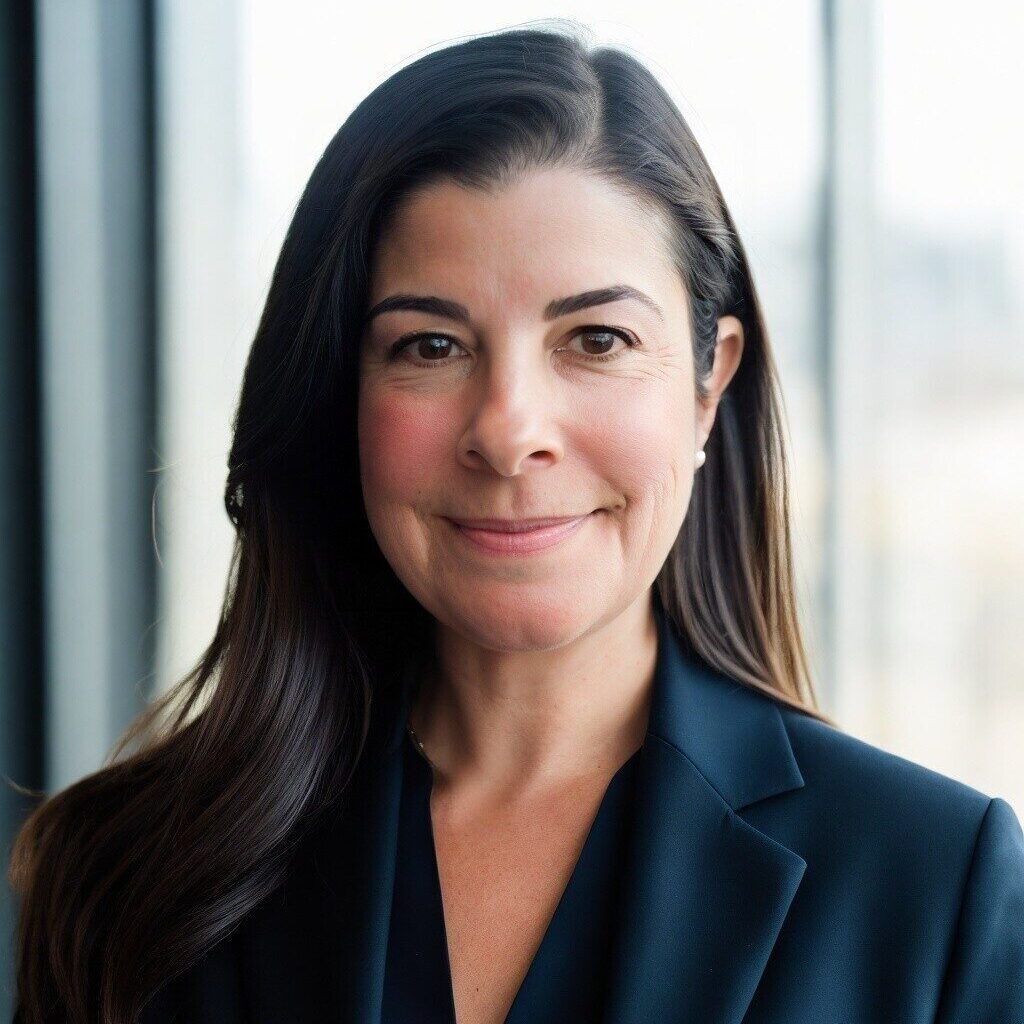
Stacy Chiaramonte
SENIOR VICE PRESIDENT, STRATEGY AND OPERATIONS FOR UPCEA RESEARCH AND CONSULTING
202-400-2707
[email protected]
Stacy Chiaramonte
Stacy Chiaramonte is Senior Vice President, Strategy and Operations for UPCEA Research and Consulting. Stacy has more than 20 years of experience in strategic planning, coaching and leadership, and operations in both mission-driven companies and higher education. Prior to joining UPCEA, Stacy was the Associate Vice President for WPI’s Graduate & Professional Studies, where she was responsible for strategy development and implementation of student-centric education programs, including programs for post-traditional students online and onsite at corporate locations.
In addition to her responsibility for graduate education and workforce development training, Stacy led WPI’s exploration of alternative credentials as a part of the university’s 5-year strategic plan. She holds a Bachelor’s in Business Administration from the University of Massachusetts, Amherst and a MBA from Babson College.
Jordan DiMaggio
Jordan DiMaggio is the Vice President of Policy and Digital Strategy for UPCEA. He comes from a background in non-profit organizations and public service with a career spanning federal policy, data infrastructure, web design, and collaborative communications. His focus is in higher education and federal policy reform, as well as technology-focused organizational structure and strategy. Currently UPCEA’s federal advocacy and governmental relations liaison, working on advancing policies that support online and nontraditional students as well as the universities which serve them. Additionally Jordan oversees the association’s digital information systems, including overseeing databases, data security, web design, and providing email and content marketing expertise. Jordan joined UPCEA in April 2013.
Before joining UPCEA, Jordan worked on Capitol Hill for former U.S. Senator Jeff Bingaman (NM) as Systems Administrator and Legislative Aide. Prior to that, he served as a Court Clerk in the Second Judicial District Court of New Mexico in their criminal, civil, and domestic relations divisions.
In his free time, he enjoys playing music and experiencing the varied cultural and especially culinary offerings from around his neighborhood or the world.
Mel Edwards
Mel Edwards comes to UPCEA with over a decade in higher education leadership and service following a career as an educator in both K-12 and postsecondary roles. She jokingly refers to herself as a multiple-project personality and has led projects within institutions and across organizations. In addition to her master's degree in education with an emphasis on storytelling and her MBA, Mel is certified in advising adult learners, project management, and Strategic Doing.
Mel is originally from New York and is a first-generation college graduate who began her education at a community college and maintains an affinity for serving first-generation, adult, and returning students. She credits much of her professional successes to the opportunities afforded her through engagement in professional organizations and networks.
Bruce Etter
Bruce joined UPCEA in 2014 as a Research Assistant for UPCEA Research and Consulting. In October of 2017 he became Project Manager, and in October 2019 he became the Assistant Director of Research and January 2022 became the Director of Research and Consulting. In January 2023, he became the Senior Director of Research and Consulting.
Bruce is responsible for developing and managing research initiatives for the UPCEA Research and Consulting and its clients. He graduated from Penn State University with a Bachelor’s of Science in Sociology and a minor in Sustainability Leadership.
When not in the office, you can find Bruce outside hiking, climbing, biking, or fishing. He has hiked the entirety of the Appalachian Trail and the Pacific Crest Trail, and completed a cross-country bicycle tour.
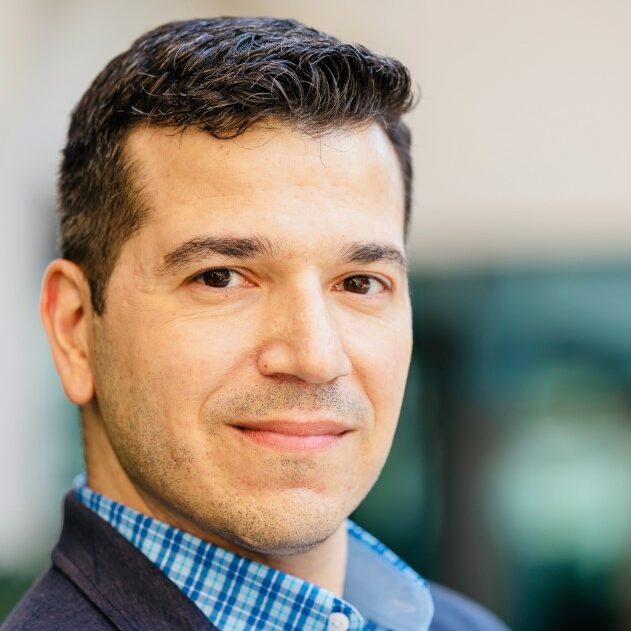
Joe Fedak
SENIOR DIRECTOR, EVENTS & ASSOCIATE DIRECTOR, COMMUNICATIONS
202-400-2684
[email protected]
Joseph J. Fedak, CMP
An event planning professional with experience coordinating events for higher education associations, government agencies, pharmaceutical companies, and universities, Joe joined the UPCEA team in September 2016. He currently serves as the Director of Events and Programming.
Joe provides direction and wide-ranging support for the development and production of UPCEA events and programming. These include, but are not limited to, the UPCEA Annual Conference, Marketing & Enrollment Management Seminar, Summit for Online Leadership, and UPCEA’s various Regional Conferences.
A Jersey boy, Joe is originally from Bayonne, New Jersey, and graduated from Rutgers University with a Bachelor’s Degree in Journalism and Media Studies. His event planning career began at Rutgers, organizing concerts and other special events. After relocating to Washington, D.C., in 2011, Joe earned his Certified Meeting Professional designation. Prior to arriving at UPCEA, he planned meetings and events for the National Association of College and University Business Officers (NACUBO).
Outside of work, Joe enjoys running, reading about history and politics, and playing on a local bocce league.
Patrick Flanigan
Patrick began his career in higher education in July of 2014 in the Western Kentucky University Office of Continuing and Professional Development. From there he moved into a role as Online Program Development specialist where he worked for five years.
In January of 2020, Patrick began his employment with UPCEA as Program Coordinator supporting the development of online professional development and other strategic initiatives. In January 2023, Patrick became the Director of Online Professional Development.
Outside of work, you can usually find Patrick with his nose in a book, strumming a guitar, or taking a long bike ride with his wife and daughter
India Gaskins
India Gaskins is the Director for Business Operations and Finance with UPCEA. India joined UPCEA in the fall of 2014.
Amy Heitzman, M.A., M.Ed., Ph.D.
With degrees in art history from the University of Michigan and the University of Chicago, Amy began her career in museum education, developing programs and training museum educators at various university art museums, as well as the Art Institute of Chicago and the Dallas Museum of Art. In 2002, after having served as Education Director for the Meadows Museum on the campus of Southern Methodist University, her interest in adult learners led her to the directorship of SMU’s Continuing Education unit.
Over the course of the next decade, she expanded the unit’s reach into the community and on campus, transforming the role of Continuing Education at SMU into one of broad, inter-disciplinary collaboration. As Executive Director of Continuing and Professional Education, Amy directed a new strategic vision for the unit, effectively doubling the number of programs offered and students served, increasing the university’s capacity to more deeply engage with its community. While at SMU, Amy served in various leadership roles including board membership in the SMU Staff Association and the Hegi Family Career Center and as an appointed member of the Presidential Council for Community Engagement and the Faculty and Staff Committee of the Second Century Capital Campaign.
It was during her time at SMU that she earned graduate certificates in marketing and nonprofit leadership, as well as the M.Ed. Amy earned her doctorate in Higher Education Administration at The University of Texas at Austin in 2014, and her dissertation focused on female student veterans in higher education. Her current research agenda is broad and involves examinations of nontraditional learners, the experiences of student veterans—particularly those of female student veterans, as well as comparative studies of international higher education systems.
Prior to joining the UPCEA staff, Amy was deeply engaged as a volunteer leader for the organization, having served as Chair of the South Region, Vice-Chair of the Leadership and Management Commission, a member of the Board of Directors, and as Chair of the national Membership Committee and Regional Cabinet.
Amy lives in Rockville, Maryland, with her husband, Brandt, and their two children.
Scott Hinty
Scott joined UPCEA in 2017 as a Research Assistant for UPCEA Research and Consulting. In January of 2025, he became a full team member as a Market Researcher. Scott is responsible for conducting various research components and is highly skilled in developing data-driven models to inform decisions. Scott has been integral to the continuous improvements of UPCEA products including the portfolio decision-making model (PDMM) and online asset assessment (OAA). Scott graduated from Penn State University with a Bachelor of Science in Corporate Innovation & Entrepreneurship.
Outside of work, Scott is an avid traveler. He has been to all fifty states and seventeen countries.

Kathleen Ives
CHIEF BUSINESS DEVELOPMENT OFFICER & SENIOR VICE PRESIDENT OF MEMBER ENGAGEMENT
202-552-0010
[email protected]
Kathleen Ives
Kathleen Ives serves as UPCEA's Chief Business Development Officer & Senior Vice President of Member Engagement. With extensive experience in the non-profit, higher education, workforce development, and corporate sectors, she currently oversees membership, partnerships, research, and consulting. In this role, she is responsible for driving member engagement, forging strategic alliances, conducting industry-leading research, and providing expert consulting services to support the association's mission.
Dr. Ives is also a Senior Advisor and Senior Instructional Designer for Hillstock and Associates, an e-learning consulting firm, and a Senior Affiliate Faculty at Wentworth Institute of Technology. She is a member of the international advisory board of the Center for Learning Innovations and Customized Knowledge Solutions (CLICKS), which supports the growth and development of higher education in the Arab region through leadership development, quality enhancement, and technology integration.
She is the co-editor and chapter author of the books "Using ROI for Strategic Planning of Online Education: A Process for Institutional Transformation" and "Leading the eLearning Transformation of Higher Education: Leadership Strategies for the Next Generation." Previously, as CEO of the Online Learning Consortium (OLC), Dr. Ives led the organization to become a self-sustaining member association after transitioning from its origins as the Sloan Consortium under the Alfred P. Sloan Foundation. She holds degrees in communication, communication management, and organizational leadership from the University of California, Davis, the University of Southern California's Annenberg School of Communication and Journalism, and the University of Phoenix-Online, respectively.
Brandan Kaiser
Brandan Kaiser is the Vice President of Membership & Corporate Partnerships with UPCEA. He joined the UPCEA team in the spring of 2017.

Molly K. Nelson
CHIEF OPERATING OFFICER & VICE PRESIDENT, COMMUNICATIONS
202-400-2676
[email protected]
Molly K. Nelson, M.A.
A communications and marketing professional with experience in both the non- and for-profit realms, Molly joined the UPCEA team as Director of Marketing and Communications in 2014.
Molly directs the association’s internal and external marketing and communications efforts, including the bi-weekly UPCEA Briefing e-newsletter and the association’s new Unbound: Reinventing Higher Education e-magazine, debuting in Fall 2015. She also manages the production of other publications and event collateral.
Molly supports the association’s social media efforts, and also collaborates with other staff on membership and other initiatives. She works actively with UPCEA volunteer leaders to support the marketing, communication, and social efforts of the association’s Networks and Regions. Molly also works with the UPCEA Awards Committee on the association’s Marketing Awards, awarded annually at the Marketing and Enrollment Management Seminar.
Originally from Troy, New York, Molly received her baccalaureate degree in English and Psychology from The George Washington University and also received a master's degree from the Communication, Culture and Technology program at Georgetown University. Outside of the office, Molly enjoys practicing yoga, exploring D.C., and reading.
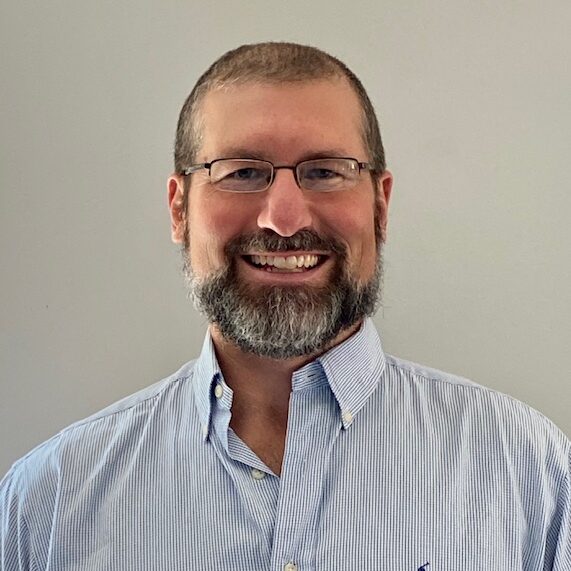
Matt Norsworthy
DIRECTOR, INTEGRATED SOLUTIONS AND BUSINESS DEVELOPMENT
202-400-2703
[email protected]
Matt Norsworthy
Matt Norsworthy, Ed.D. is the Director of Integrated Solutions and Business Development at UPCEA, and he generates and executes a sustainable and holistic business development strategy across functional areas and product lines including membership, corporate engagement, research and consulting, and professional development. Matt strives to promote UPCEA’s value proposition, grow UPCEA partnerships and memberships, augment and scale UPCEA Research & Consulting projects, and identify new prospects for UPCEA’s professional development programs in addition to assisting with sponsorship sales and exhibit space for UPCEA conferences.
Previously, Matt worked with institutions for over seven years as the Director of Membership and Strategic Partnerships for the Online Learning Center (OLC). Matt has also been designing, developing, and teaching English and Humanities courses for over nineteen years. Dr. Norsworthy holds a Doctorate of Education in Higher Education and Organizational Change from Benedictine University where he wrote his dissertation on “A Comparison of the Experiences of Online and Face-to-Face Doctoral Students in the Humanities”.

Melissa Peraino
DIRECTOR OF CONTENT DEVELOPMENT AND VOLUNTEER LEADER MANAGEMENT
202-987-5702
[email protected]
Melissa Peraino
Melissa Peraino serves as the Director of Content Development and Volunteer Leader Management for UPCEA. She brings passion and enthusiasm to her role while providing wide-ranging support for content development and volunteer leadership management for the organization.
Most of her professional career has focused on increasing access for lifelong learning opportunities. Melissa came to UPCEA from Grand Valley State University, in west Michigan, where spent more than two decades navigating change at an institution that grew from 10,000 to more than 20,000 learners. Her roles there included building corporate training, public programs, community engagement, advising and regional center operations. Prior to GVSU, Melissa was at Ball State University’s Center for Organizational Resources supporting corporate programs and building out entrepreneurship education programs.
Perhaps her most important role is being a mom and helping her two children navigate their journey.
Melissa earned a B.A. in Education from Alma College and an M.A. in Adult Education from Ball State University.
Jacqueline Romero
Jacqueline Romero is the Program Manager with UPCEA. She works on UPCEA's national and regional conferences, as well as with the association's Network and Regional leadership teams and the Association Awards committee. Jacqueline joined UPCEA in the summer of 2017.
Tanya Smith
Tanya Smith is a Certified Public Accountant with an extensive background in higher education. In 2024, she joined UPCEA as the Controller. Prior to this role, she dedicated 25 years to The University of Alabama in Huntsville (UAH), where she most recently served as the Director of Accounting and Financial Reporting.
During her tenure at UAH, Tanya was responsible for overseeing the financial reporting functions for both UAH and the UAH Foundation, providing critical technical direction, and ensuring compliance with regulatory standards.
Tanya holds a Bachelor of Science in Accounting and an MBA from Alabama A&M University. She also earned a Master of Science in Cybersecurity from The University of Alabama in Huntsville.
In her free time, Tanya enjoys spending quality time with her family, traveling, and nurturing her garden.
Jean Simmons
A highly skilled marketing and communications strategist with over 20 years of experience in traditional and digital marketing, Jean joined UPCEA in 2020 to help strategically foster growth and expansion for all aspects of the association. Jean brings extensive expertise and experience in online higher ed and membership, having championed the marketing team as Director of Marketing and Communications for The Online Learning Consortium (OLC), formerly The Sloan Consortium, for over 11 years.
Jean's specific support for UPCEA focuses on strategic direction for the association’s membership, social media, and professional development. She also collaborates with UPCEA leadership and staff on many other initiatives within the organization.
Currently residing on Cape Cod, Massachusetts, Jean received her BS degree in Business Administration from Emmanuel College in Boston, MA and also received her master's degree in Business Administration and Marketing from Post University in Waterbury, CT. Jean is an avid gardener, nature and fitness enthusiast and animal activist, serving as a volunteer with the Animal Rescue League of Boston.
Julie Uranis, Ph.D.
As a member of the UPCEA management team, Julie Uranis serves as the Senior Vice President for Online and Strategic Initiatives. In this capacity she leads the planning efforts for the Summit for Online Leadership, which established UPCEA as the source for innovations focused on online leadership, strategy, and management. She also leads the planning of Council of Chief Online Learning Officers convenings focused on thought-leadership and policy. She supports the work of the eDesign Collaborative, focused on the needs of instructional designers/technologists and multimedia developers from both public and private sectors. Finally, she works closely with the CEO and the Chief Learning Officer on key strategic initiatives inclusive of several external collaoborations and partnerships.
Prior to joining UPCEA as a staff member, Uranis lead two distinct units at Western Kentucky University (WKU). Her responsibilities included overall operations and the strategic direction of proctored testing, WKU On Demand, instructional design, Career and Workforce Development and Lifelong Learning. WKU’s Distance Learning Unit was recognized by UPCEA for strategic innovations focused on accessibility in 2016 and ranked as high as #2 in the nation on the 2014 U.S. News and World Report list of online bachelor degree programs. She played a key role in Kentucky joining the State Authorization Reciprocity Agreement (SARA) as she was heavily involved in the lobbying effort on behalf of the public four-year institutions in Kentucky. Prior to joining WKU in 2013, Uranis held both teaching and administrative positions at Eastern Michigan University (EMU), joining that institution in 2003.
A native Michigander, Uranis has a Ph.D. in Educational Leadership, a Master of Science in Technology Studies, and a Graduate Certificate in Community College Leadership from EMU. She completed a Bachelor of Arts degree in History from the University of Michigan-Dearborn. Not only does she have a penchant for degrees from her home state, she also has a deep appreciation for ‘all things Michigan’ such as Vernors – her favorite ‘pop’, coney island restaurants, the fall colors in Michigan, and ‘up north’ vacations.
Uranis has been active with various organizations throughout her professional career including University Professional and Continuing Education Association (UPCEA) serving on the Executive Committee, Board of Directors and in other volunteer leadership roles; the Association of Continuing Higher Education, serving on the editorial board of the Journal of Continuing Education; the Kentucky Distance Learning Steering Committee, having served as meeting convener and WKU’s representative; the Blackboard Executive CBE Advisory Council; and other regional community groups and higher education associations.
Emily West, MBA
Emily joined UPCEA in 2023 and is Senior Market Research Analyst. She is responsible for supporting research initiatives for UPCEA’s Research and Consulting team and its clients.
Before joining UPCEA, Emily was the Senior Product Strategist for Southern New Hampshire University’s Office of Product and Program Innovation. She was responsible for strategy development and market analysis to identify emerging trends and promising product ideas. Prior to that, she provided strategic oversight of curriculum design and academic quality at SNHU as the Director of Curriculum and Assessment.
Emily graduated from Wheaton College with a B.A. in Art History and a minor in Economics and earned her MBA at Southern New Hampshire University. Emily enjoys spending time outdoors in her native state of New Hampshire, bee keeping, watercolor painting, and coaching her daughters’ sports teams.
Senior Fellows
Dave Jarrat
Dave Jarrat is a social impact executive focused on improving educational opportunities and outcomes for historically underrepresented populations. He currently serves as a Senior Fellow for UPCEA, the online and professional education association, and as a Strategic Advisor to a broad range of higher education institutions and organizations, including the University of Cambridge, Edquity and Scholarships360.
Prior to taking on these roles, he spent more than a decade driving growth and impact for InsideTrack, a leading student success nonprofit. As a member of InsideTrack’s leadership team, he directed stakeholder engagement, thought leadership, marketing, research, policy and industry relations activities. Before working in education, Dave spent nearly two decades in the environmental and technology fields.
Dave has authored numerous papers on issues related to student success and higher education trends. His research and opinions have appeared in popular media outlets including NBC News, US News & World Report, the Chronicle of Higher Education and Inside Higher Ed. He is also a regular speaker at higher education industry events and conferences.
Dave holds a B.A. in Environmental Science, Economics and Politics from Claremont McKenna College and a Masters in Business Administration from the Haas School of Business at the University of California, Berkeley.
You can follow Dave on Twitter (@djarrat) and LinkedIn (linkedin.com/in/jarrat/)
Ricky LaFosse
Ricky LaFosse is the Associate Director of Compliance and Policy at the University of Michigan’s Center for Academic Innovation, a licensed attorney, and a former Chair of UPCEA’s Policy Committee. Through his current position and a previous role as a Compliance Consultant for the Office of Online Education at Indiana University, Ricky has ten years of experience supporting online education compliance efforts. In addition to online and hybrid degree programs, Ricky regularly provides support for alternative credential programs, extended reality initiatives, educational research efforts, and learning tool development and procurement.
Ricky holds a J.D. and Ph.D. in Education Policy from Indiana University, a M.Ed in Curriculum and Instruction from the University of Nevada, Las Vegas, and a B.A. in English from the University of Massachusetts, Amherst. While in law school, he interned with Indiana University’s Office of the Vice President and General Counsel and with the U.S. Court of Appeals, Third Circuit. Prior to entering law school, Ricky taught middle-school English as a Teach For America corps member.
Ray Schroeder
Ray Schroeder is Senior Fellow of UPCEA the online and professional education association and Professor Emeritus at the University of Illinois Springfield (UIS), and is a nationally respected and connected leader in higher education online learning. During his tenure at UIS, he launched the online learning program at UIS in 1997. He founded the Center for Online Learning, Research and Service and became Associate Vice Chancellor for Online Learning in 2013, a position held until 2021. To continue research, publication and presentations, Ray was appointed UIS Senior Fellow for Online Learning in the Provost's Office beginning in August, 2021, returning to Professor Emeritus in August, 2022.
The recipient of numerous national awards and citations for individual excellence and leadership from many associations and entities including the Sloan Consortium (OLC), US Distance Learning Association, American Journal of Distance Education, Illinois Council for Continuing Higher Education, University of Wisconsin and University of Illinois, Ray is the author of book chapters, articles, widely read curated reading lists, blogs and social media feeds on news and research in online learning / educational technology. Ray is a noted speaker, consultant, researcher, and author on topics related to online learning, emerging educational technologies, and technology-enhanced learning. He publishes a bi-weekly column, Online: Trending Now, in Inside Higher Education. Most recently, he was awarded the honorary Doctorate of Humane Letters from UIS for his leadership in online and distance learning and he was honored with the designation of a national award in his name - Ray Schroeder Leadership Award for the Advancement of Digital Learning.
His current area of research, presentation and publication is Generative AI in higher education.
Kevin Shriner
Kevin N. Shriner, Ed.D. is an education executive and strategist focused on expanding access to meaningful college credentials and improving institutional outcomes through data-informed innovation. He currently serves as a UPCEA Fellow and Founder and Executive Director of the International Distance Education Benchmark Project (IDEBP), a national initiative dedicated to advancing transparency and collaboration in online education.
Over the past three decades, Kevin has led digital learning and academic transformation initiatives across public universities, private colleges, and education companies. His work has centered on helping institutions design sustainable online ecosystems, build workforce-aligned programs, and strengthen student success through evidence-based decision-making.
As a first-generation Pell Grant recipient, Kevin brings both personal insight and professional depth to his work at the intersection of education, technology, and strategy. He is a frequent presenter and author on topics related to online education data, institutional benchmarking, and the future of digital learning.
Kevin earned his Ed.D. in Higher Education Leadership from Nova Southeastern University; an M.Ed. in Higher Education Administration and an M.A. in History from the University of Arkansas; a B.S. in Agriculture from Kansas State University; and an A.S. from Colby Community College.
Strategic Advisors
Bylaws
UPCEA's Bylaws set out the purposes and general organizational structure for the Association.
Approved March 23, 2023
Section 1. Name. The name of the organization shall be the University Professional and Continuing Education Association, Inc. (hereinafter referred to as "Association" or “UPCEA”).
Section 2. Location. The administrative offices of the Association will be located in Washington, D.C. or elsewhere as may be determined by the Board of Directors.
Section 1. Purposes. The Association is a non-profit corporation organized under the District of Columbia Non-Profit Corporation Act exclusively for education, scientific, research, mutual improvement, and professional purposes within the meaning of Section 501 (c)(3) of the Internal Revenue Code of 1986, as amended (or the corresponding provision of any future Internal Revenue law) and shall have the necessary and incidental powers to carry out its corporate purposes, which shall include:
- To promote quality in professional, continuing, and online postsecondary education.
- To enable professional, continuing, and online postsecondary education leaders to serve the needs of learners effectively.
- To represent the broad interests of professional, continuing, and online postsecondary education through advocacy.
- To develop and disseminate timely information and research about professional, continuing, and online postsecondary education.
- To work closely with allied organizations in the higher education community to advance professional, continuing, and online postsecondary education.
- To recognize the achievements of leaders who have contributed to the advancement of professional, continuing, and online postsecondary education.
- To provide a forum for interaction and exchange of ideas among postsecondary education professionals.
- To provide educational programs intended to increase the professional skills and knowledge of Association members.
Section 2. Restrictions. All policies and activities of the Association shall be consistent with: 1) applicable state, federal and local antitrust, trade regulation or other requirements, and 2) applicable tax-exemption requirements, including the requirements that UPCEA not be organized for profit and that no part of its net earnings inure to the benefit of any private individual.
Section 1. Categories. Membership in the Association shall be divided into the following categories: Institutional, Corporate, Affiliate, Emeritus and Transitional. The Board of Directors of the Association shall have the authority to create additional categories of membership. The Association’s membership categories are defined as follows:
- Institutional Membership. U.S. institutional members are degree-granting institutions of higher education in good standing with an accrediting body recognized by the U.S. Department of Education. Non-U.S. institutions shall be similarly accredited by an appropriate governing body. Where there is no recognized accrediting body, admission as a non-U.S. institutional member will be reviewed by the Board or its appointed committee. In the case of multi-campus U.S. institutions, institutional members shall be limited to campuses or units directly accredited, as shown by the entry in the most current edition of the Higher Education Directory. System offices and other coordinating bodies are eligible for institutional membership provided that the institutions they coordinate meet the accreditation standards described above. Each institutional member is entitled to an Institutional Representative, an Alternate
Representative, and individual Professional Memberships. These categories are described below.- Institutional Representatives. Each institutional member shall designate an Institutional Representative, who shall represent the institution and serve as a central point of contact for association business.
- Alternate Representatives. Each institutional representative is entitled to appoint an Alternate Representative, who may act on his/her behalf when asked to do so.
- Professional Members. Each member institution shall receive an unlimited number of individual Professional memberships unless otherwise limited by the Board of Directors.
- Corporate Membership. Corporate membership is available to business entities. Each corporate member is entitled to a Corporate Representative, an Alternate Corporate Representative and a number of individual Professional Representatives. Corporate members shall be eligible to serve on the Board of Directors but not as an officer. These categories are described below.
- Corporate Representatives. Each corporate member shall designate a Corporate Representative, who shall represent the organization and serve as a central point of contact for all association business.
- Alternate Corporate Representative. Each corporate representative is entitled to appoint an Alternate Representative who may act on his/her behalf when asked to do so.
- Professional Corporate Members. Each corporate member institution shall receive a number of individual Professional Corporate Representatives to be determined by the Board of Directors.
- Affiliate Members. Affiliate membership is available to non-profit organizations, and other entities having an interest in the activities of the Association but not otherwise eligible for institutional or corporate membership. Affiliate Representatives shall be eligible to serve on the Board of Directors but not as an officer.
- Affiliate Representatives. Each affiliate member shall designate a Representative, who shall represent the affiliate and serve as a central point of contact for all association business.
- Alternate Affiliate Representative. Each affiliate representative is entitled to appoint an Alternate Representative who may act on his/her behalf when asked to do so.
- Professional Affiliate Members. Each affiliate member institution shall receive a number of individual Professional Affiliate memberships to be determined by the Board of Directors.
- Emeritus and Transitional Members. Emeritus and Transitional membership is limited to retired or transitioning individuals no longer employed by an entity eligible for other forms of membership (institutional, corporate, or affiliate). Emeritus and Transitional members are not eligible to serve on the Board of Directors but may serve on Association committees.
Section 2. Applications for Membership. UPCEA Staff will receive and review applications to confirm the applicant’s eligibility for membership in one of the UPCEA membership categories.
Section 3. Resignation. A member of the Association may resign from UPCEA by notifying UPCEA’s administrative office, as noted in Article X of the Bylaws. Voluntary resignation does not relieve the resigning member from liability for the full annual dues or other financial obligations accrued and unpaid as of the date of resignation.
Section 4. Termination of Membership.
- Any member’s membership may be terminated upon recommendation from the CEO and approval by a two-thirds vote of the Board of Directors for failure to comply with the purposes and standards of UPCEA and/or failure to maintain requirements for membership. The member will be provided with not less than thirty (30) days advance notice of the proposed membership termination, including the reason(s) for the proposed termination, and provided an opportunity to contest the proposed termination in writing to the Board of Directors. The decision of the Board shall be final and binding.
- Memberships determined delinquent in payment may be terminated without action by the Board of Directors.
- Individual professional members of the Association may be terminated from the Association for other reasons by a two-thirds (2/3) vote of the Board of Directors. The member will be provided with no less than thirty (30) days advance notice of the proposed termination, including the reason(s) for the proposed termination, and provided an opportunity to contest the proposed termination in writing to the Board of Directors. The decision of the Board shall be final and binding.
Section 1. Assessment. Membership dues shall be reviewed and approved by the Board of Directors.
Section 2. Delinquency. Any member of the Association who fails to pay dues, registration fees, or bills for any other program or service within ninety (90) days of the date such payment is due will be deemed delinquent.
Section 1. Regular Meetings. The full membership of the Association, in the form of Institutional, Corporate and Affiliate Representatives, shall meet at least once in each calendar year, either in-person or by a technology-mediated method.
Section 2. Special Meetings. Special meetings may be called as deemed necessary by the Board of Directors. Meetings of the Association shall be at such times, dates, or locations (if in-person) as may be designated by the Board. The membership shall be notified in writing or electronically not less than seven (7) days in advance of a regular or special meeting of the membership of the time, date, location and purpose of the meeting.
Section 1. General Powers. The Board of Directors is responsible for the governance of the Association. The Board establishes Association policy and monitors implementation of such policy in a manner consistent with the Association’s nonprofit purposes. The Board may adopt such operating rules, policies, and procedures as shall be deemed advisable, and may appoint such agents as may be considered necessary.
Section 2. Composition. The Board of Directors shall be comprised of:
- The Board President
- the Board President-Elect;
- the Immediate Past Board President;
- the Secretary/Treasurer;
- the Chief Executive Officer (“CEO”) in an ex-officio, non-voting capacity;
- the Chair of the Network Senate;
- the Chair of the Regional Cabinet;
- the Senior Chair of the Diversity and Inclusive Excellence Committee;
- a representative of the Policy Committee;
- the Senior Chair of the Membership Committee;
- no more than one corporate partner representative;
- and no more than twelve (12) Directors-at-Large.
Section 3. Terms. The following leadership positions are single, non-renewable terms unless otherwise noted below:
- Board President. The Board President shall serve a one (1) year term before succeeding to the office of Immediate Past Board President;
- Board President-Elect. The Board President-Elect shall serve a one (1) year term before succeeding to the office of Board President;
- Immediate Past Board President. The Immediate Past Board President shall serve a one (1) year term following the conclusion of his or her one (1) year term as Board President;
- Secretary/Treasurer. The Secretary/Treasurer shall serve a two (2) year term;
- Chair of the Governance and Nominations Committee. The Chair of the Governance and Nominations Committee shall serve a one (1) year term;
- Chair of the Network Senate. The Chair of the Network Senate shall serve a two (2) year term on a cycle alternating with the Chair of the Regional Cabinet.
- Chair of the Regional Cabinet. The Chair of the Regional Cabinet shall serve a two (2) year term on a cycle alternating with the Chair of the Network Senate.
- Chairs of the Diversity and Inclusive Excellence Committee. The Chairs of the Diversity and Inclusive Excellence Committee shall serve staggered two (2) year terms.
- Chairs of the Membership Committee. The Chairs of the Membership Committee shall serve staggered two (2) year terms.
- Co-/Chair(s) of the Policy Committee. The Co-/Chair(s) of the Policy Committee shall serve staggered two (2) year terms.
- Corporate Partner Representative. The Corporate Partner Representative shall serve a one (1) year term.
- Directors-at-Large. Directors-at-Large shall serve staggered two (2) year terms.
- Standing Board Committee Members. All non-board committee members selected through the annual nominations process serve one (1) year renewable terms; board members assigned as board representatives to standing board committees serve one (1) year renewable terms.
- Non-Standing Committees and Short-Term Task Forces. The length of all terms for individuals seated on non-standing committees and short-term task forces will be determined upon their creation.
- Commencement of Terms. Volunteer leaders throughout the association, excluding non-standing and short-term task forces, shall begin their terms at the conclusion of the Annual Conference of the Association.
Section 4. Nomination and Election of Officers, Board Members, Chairs of Board Standing Committees, and Board Standing Committee Members. The Governance and Nominations Committee will solicit, accept, and review nominations for all of the Association’s positions on the Board of Directors, including officers, standing committee members and standing committee chairs other than the Governance and Nominations Committee itself. The Governance and Nominations Committee will present candidates for open positions for vote by the current Board of Directors, which must be returned within the designated time frame established by the Committee. The Directors-at-Large shall be elected by a majority of the voting members of the Board of Directors. No member of the Committee may be a candidate for any position under its purview.
Section 5. Meetings. The Board shall meet in person at least twice each calendar year. Additional meetings may be held by telephone or other technology-mediated method to provide access and ensure maximum participation and interaction between and across Directors; Board members shall be notified of the time, location, and purpose of any virtual meeting by mail or electronic mail not less than seven (7) days prior to the scheduled meeting. Except as otherwise provided by law or these Bylaws, a majority vote is required to carry a motion where a quorum is present. Proxy voting is not permitted in matters brought before the Board for a vote.
Section 6. Parliamentary Procedure. Roberts Rules of Order Revised shall be used to govern all meetings of the Board and Association, and parliamentary procedures insofar as they are consistent with applicable statutes, the charter, and these Bylaws, unless other specific procedures are provided by the Board.
Section 7. Quorum. A quorum shall be a majority of voting Board members.
Section 8. Minutes. Minutes of all Board meetings shall be kept and constitute a record of the business conducted by the Board.
Section 9. Compensation. Board members shall not receive compensation or reimbursement for their services on the Board of Directors but may be reimbursed for certain expenses according to an established reimbursement policy.
Section 10. Vacancy. A member of the Board may resign at any time by giving written notice addressed to the Board President and sent to UPCEA’s administrative office. Such resignation shall take effect at the time specified in the written notice or, if no time is specified, at the time determined by the Board President. In the event of a vacancy by reason of death or resignation, the Governance and Nomination Committee, in consultation with the current Board President, shall appoint an eligible replacement to serve for the remainder of the term.
Section 11. Removal by Board Vote. A Board member absent from two (2) consecutive meetings of the Board may be removed by a majority vote of Board members at a regular or special meeting at which a quorum is present. A member of the Board of Directors may also be removed by two-thirds (2/3) majority vote of the Board where such removal is deemed in the best interests of the Association. The Board member who is the subject of the proposed removal shall not be permitted to vote on his/her removal. The Board member shall be provided with no less than thirty (30) days advance written notice of the proposed action, which notice shall include the reason(s) for the proposed removal and confirm that the Board member shall have the opportunity to contest the same in writing or in person at a meeting of the Board. The Board member who is the subject of the removal shall be provided with final written notice of the Board’s decision.
Section 12. Removal Due to Employment Change. The status of a Board member who has ended their institutional or organizational employment is subject to immediate review by the CEO, Board President, and Chair of the Governance and Nominations Committee (GNC). The CEO, Board President, and Chair of the GNC shall review the board member's current and future board eligibility and may recommend resignation, immediate termination, or no change in board participation. In the case of resignations and terminations, the Governance and Nomination Committee, in consultation with the current Board President, shall appoint an eligible replacement to serve for the remainder of the term.
Section 1. Designated Officers. The Officers of the Association include the Board President, Board President-Elect, Immediate Past Board President, Secretary/Treasurer, and the Chief Executive Officer, in an ex-officio, non-voting capacity.
Section 2. Duties. The officers perform those duties that are usual to their positions and that are assigned to them by the Board of Directors. In addition, each officer shall have the following duties and responsibilities:
- Board President. The Board President shall be the principal elected officer of the Association and the Chair of the Board of Directors. The Board President shall preside at meetings of the Board and the Executive Committee and the Annual Meeting of the Association. The Board President shall perform such other duties as are required for the office of Board President or as needed from time to time by the Board or in these Bylaws, with the exception that the executive and administrative responsibilities for the management and continuing conduct of the Association’s affairs shall be conducted by the CEO of the Association.
- Board President-Elect. The Board President-Elect, in the absence of the Board President, shall perform all of the duties of the Board President and shall automatically succeed to the office of Board President. The Board
President-Elect shall also perform such other duties as are necessary for the office, or as may be assigned by the Board of Directors from time to time, or as set forth in these Bylaws. The Board President-Elect serves as the Chair of the Governance and Nominations Committee. - Immediate Past Board President. The Immediate Past Board President remains an officer and director for one (1) year following the completion of his or her term as Board President; and performs such other duties as may be determined by the Board of Directors.
- Secretary/Treasurer. The Secretary/Treasurer shall be responsible for oversight of the Association’s finances; serve as the Chair of the Finance Committee; and perform such other duties as may be determined by the Board of Directors.
- Chief Executive Officer (CEO). The CEO manages UPCEA and serves at the pleasure of the Board of Directors. The CEO has sole authority over the staff of UPCEA, and reports to and is engaged by the Board of Directors.
Section 1. Executive Committee. The Executive Committee shall consist of each of the officers of the Association, the Chair of the Network Senate, and the Chair of the Regional Cabinet. The Executive Committee may act in the place of the Board of Directors where action by the Executive Committee is time-sensitive and/or does not violate any policies or procedures specifically reserved for the full Board.
Section 2. Finance Committee. The Finance Committee shall be composed of at least three (3) Board members, including the Secretary/Treasurer of the Association, who shall serve as Chair of the Committee along with up to four (4) additional committee members, selected or renewed in keeping with Section 3, Item J. Terms. The CEO and Chief Financial Officer of the Association serve as ex-officio and non-voting members.
Section 3. Governance and Nominations Committee. The Governance and Nominations Committee is responsible for the nomination process and oversight of Board and association-wide governance matters. It shall be comprised of at least five (5) members, including at least three (3) Board members in addition to the Board President-Elect, who shall serve as the Chair of the committee as well as the CEO, both serving as non-voting members. Members of the Committee are appointed by the Executive Committee.
Section 4. Regional Cabinet. The Regional Cabinet shall be composed of the immediate past chair of each region and is convened by the Regional Cabinet Chair.
Section 5. Network Senate. The Network Senate shall be composed of the chairs of each Network, and convened by the Network Senate Chair.
Section 6. Diversity and Inclusive Excellence Committee. The Diversity and Inclusive Excellence Committee shall be composed of the network vice chairs for diversity and inclusion along with up to four (4) additional committee members, selected or renewed in keeping with Article VI. Section 3, Item m. Standing Board Committee Members. The committee is convened by the Diversity and Inclusive Excellence Committee Senior Chair.
Section 7. Policy Committee. The Policy Committee shall be composed of committee members selected or renewed in keeping with Article VI. Section 3, Item m. Standing Board Committee Members. The committee is convened by a Policy Committee Co-/Chair.
Section 8. Membership Committee. The Membership Committee shall be composed of up to five regional membership representatives selected or renewed in keeping with Article VI. Section 3, Item m. Standing Board Committee Members. The committee is convened by the Membership Committee Senior Chair.
Section 9. Creation and Dissolution of Standing Committees. The Board of Directors may create or dissolve Standing Committees.
The Board President, with the approval of the Board of Directors, shall establish and dissolve non-standing committees and short-term task forces as are necessary and beneficial to the conduct of the Association’s business and affairs. The duration, leadership, composition, and charges of these committees and short-term task forces shall be determined at their inception and reviewed as necessary by the Board.
Section 1. Chief Executive Officer.The Board shall employ a chief executive officer (“CEO”) to carry out the management and administration of the Association. The Officers of the Board shall fix by contract the duties, responsibilities, and compensation of this position. In the event of a vacancy in the position of Chief Executive Officer, the Board of Directors shall establish a search process.
Section 2. Staff. The Chief Executive Officer is solely responsible for hiring, terminating, and managing all association staff members.
Section 3. Power of Attorney. The CEO, Board President, and Treasurer have authority as attorney-in-fact to execute and acknowledge on behalf of the Association, legal documents or other instruments in connection with the operations of the Association as approved by the Board of Directors.
Section 4. Books and Records. The Association shall keep correct and complete books and records of account.
Section 1. Electronic Communications. Any communication from the Association to its members or the Board of Directors or from members to the Association or the Board, including but not limited to meeting notices and ballots, may be made by electronic means.
Section 2. Telephone/Video Participation. Any meeting of the Board of Directors or an organizational unit of the Association may be conducted by telephone or video conference, in whole or in part, where all persons participating may hear each other.
Section 3. Notifications to UPCEA. All official notifications from members must be sent to UPCEA’s administrative office. The physical and electronic (email) address for the association’s administrative office can be found on the association’s website, www.upcea.edu.
Section 1. Means of Voting. Voting on all matters by the Board may be conducted by ballot sent by electronic mail, or other authorized communications equipment (as defined by District of Columbia law), or such additional means as may be authorized from time to time by the District of Columbia Nonprofit Corporation Act, as amended, and nothing in these Bylaws shall be deemed to bar the use of such new means of voting nor shall any further amendments of these Bylaws be required.
Section 2. Deemed Present in Person. Board members who vote by electronic mail, or any other authorized communications equipment (as defined by District of Columbia law) now existing or hereafter coming into existence, or such additional means as may be authorized from time to time by the District of Columbia Nonprofit Corporation Act, as amended, shall be deemed present in person at any meeting of membership to which the particular vote pertains.
Section 3. Presumption. The means by which any voting member casts a vote shall be presumed to be a method of voting chosen by and authorized by the voting member.
Section 4. Future Means of Voting. At the time of amendment of these Bylaws, the District of Columbia Nonprofit Corporation Act allows a board of directors to act only in person at a meeting, or to participate in a meeting by means of telephone where all persons may hear each other, and by unanimous written consent. In the event that the District of Columbia Nonprofit Corporation Act may be amended to broaden beyond meetings, telephone calls, and unanimous written consent the means by which the Association’s Board of Directors may act, such additional means as may be authorized from time to time may be utilized by the Association’s Board of Directors immediately, and nothing in these Bylaws shall be deemed to bar the use of such new means of acting or participating, nor shall any further amendment of these Bylaws be required.
Section 1. Fiscal Year. The fiscal year of the Association shall be determined by the Board of Directors.
Section 2. Budget. The Association shall operate under a budget approved annually by the Board of Directors.
Section 3. Audit. The finances of the Association shall be audited annually and reported to the Board of Directors.
To the extent permitted under the laws of the District of Columbia, any present or former director or officer of the Association, or other such persons so designated in the discretion of the Board of Directors, or the legal representative of such person, shall be indemnified by the Association against all reasonable costs, expenses, and counsel fees paid or incurred in connection with any action, suit or proceeding to which any such person or his/her legal representative may be made a party by reason of his/her being or having been a director or officer, or serving or having served the Association, except in relation to matters as to which he/she shall be found guilty of negligence, intentional, willful or criminal misconduct in respect of matters in which indemnification is sought and in relation to matters settled or otherwise terminated without a final determination on the merits where such settlement or termination is predicated on the existence of such negligence, intentional, willful or criminal misconduct.
Section 1. Rights of Proprietorship. Membership in the Association is a privilege and not a property right. No member shall have any ownership or property rights in the funds, property or other assets of the Association.
Section 2. Dissolution. Upon dissolution of the Association or the winding up of its affairs, and after paying or providing for the payment of all liabilities, obligations and expenses of the Association, the remaining assets of the Association shall be distributed exclusively to one or more charitable, educational, scientific or philanthropic organizations that are exempt from Federal income taxation under Section 501(c)(3) and to which contributions are then deductible under Section 170(c)(2) of the Internal Revenue Code of 1986, as amended. Dissolution of the corporation shall conform to the requirements of the laws of the District of Columbia.
Amendments to the bylaws will be reviewed by the Governance and Nominations Committee. The Governance and Nominations Committee will provide recommendations to the Board of Directors. Amendments must be approved by a two-thirds vote at any meeting of the Board of Directors where a quorum is present.
UPCEA Statements
In most cases, UPCEA does not make statements on social issues, events, or activities occurring outside higher education. We remain steadfast in our commitment to the association’s mission and the values articulated in the association’s diversity, equity, and inclusion vision statement.
Contact UPCEA
Questions about UPCEA? Feel free to contact us at [email protected], 202-659-3130 during business hours or reach out to specific members of our team.

Get Involved with UPCEA
Professional development isn't just about attending sessions. Get involved with UPCEA to meet members from other institutions, share the great work your institution is doing, and hone your own skills. From submitting a session proposal for a conference or an article for a publication to serving as a volunteer on a conference planning committee, there are as many ways to engage with us!

